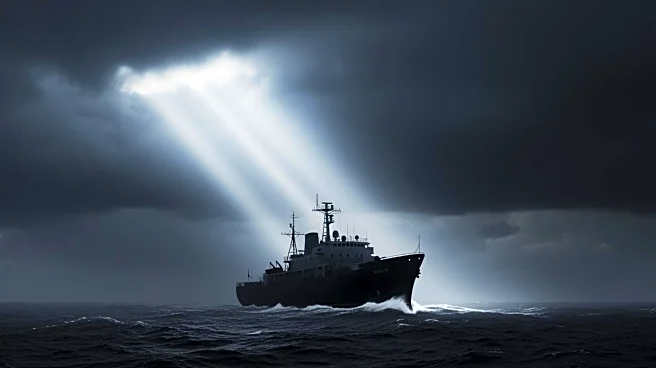What's Happening?
The operations of two bunker tankers, Rina and Zircone, in the Baltic Sea have exposed weaknesses in the sanctions system as a foreign policy tool. These tankers regularly refuel Russian dark fleet tankers, which have been increasingly isolated since
Russia's invasion of Ukraine. Despite efforts by countries like Estonia and Latvia to curb Russian aggression, activities associated with the dark fleet continue in their ports. The ownership of these tankers has shifted to a company registered in Dubai, further complicating enforcement of sanctions.
Why It's Important?
The activities of the Rina and Zircone highlight the challenges in enforcing sanctions against Russian entities. The inability of countries to effectively curtail these operations underscores the limitations of sanctions as a tool for international pressure. This situation raises concerns about the effectiveness of current policies and the need for stronger international cooperation to address the issue. The ongoing operations of the dark fleet could undermine efforts to isolate Russia economically and politically.
Beyond the Headlines
The saga of the Rina and Zircone illustrates the complexities of international maritime operations and the challenges in regulating activities that cross national boundaries. The involvement of Dubai-based companies in these operations highlights the global nature of the shipping industry and the difficulties in enforcing sanctions across different jurisdictions. This situation may prompt discussions on the need for more robust international frameworks to address such challenges.















